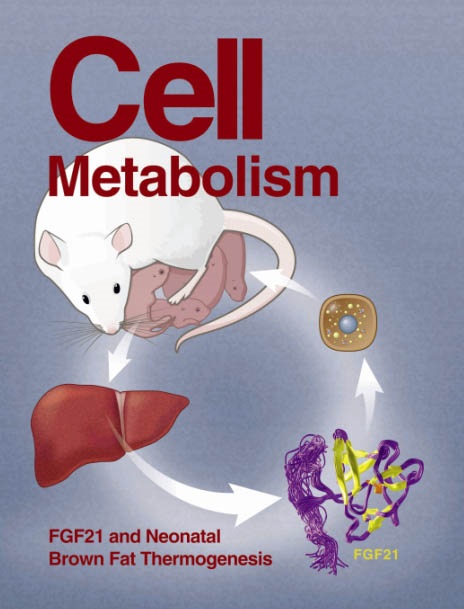Hepatic lipid remodeling in cold exposure uncovers direct regulation of bis(monoacylglycero)phosphate lipids by phospholipase A2 group XV
IF 30.9
1区 生物学
Q1 CELL BIOLOGY
引用次数: 0
Abstract
Cold exposure is a selective environmental stress that elicits a rapid metabolic shift to maintain energy homeostasis. In response to cold exposure, the liver rewires the metabolic state, shifting from glucose to lipid catabolism. By probing the liver lipids in cold exposure, we observed that the lysosomal bis(monoacylglycero)phosphate (BMP) lipids were rapidly increased during cold exposure. BMP lipid changes occurred independently of lysosomal abundance but were dependent on the lysosomal transcriptional regulator transcription factor EB (TFEB). Knockdown of Tfeb in hepatocytes decreased BMP lipid levels and led to cold intolerance in mice. We assessed TFEB-binding sites of lysosomal genes and determined that the phospholipase a2 group XV (PLA2G15) regulates BMP lipid catabolism. Decreasing Pla2g15 levels in mice increased BMP lipids, ablated the cold-induced rise in BMP lipids, and improved cold tolerance. Mutation of the catalytic site of PLA2G15 ablated the BMP lipid breakdown. Together, our studies uncover TFEB regulation of BMP lipids through PLA2G15 catabolism.

低温暴露时肝脏脂质重塑揭示了磷脂酶A2组XV对单酰基甘油磷酸脂的直接调节
冷暴露是一种选择性的环境压力,引起快速的代谢转变,以维持能量稳态。在寒冷环境下,肝脏会改变代谢状态,从葡萄糖分解代谢转变为脂质分解代谢。通过检测低温暴露时的肝脏脂质,我们观察到溶酶体磷酸单酰基甘油(BMP)脂质在低温暴露时迅速增加。BMP脂质变化与溶酶体丰度无关,但依赖于溶酶体转录调节因子EB (TFEB)。肝细胞中Tfeb的敲低降低BMP脂质水平,导致小鼠冷耐受。我们评估了溶酶体基因的tfeb结合位点,并确定磷脂酶a2组XV (PLA2G15)调节BMP脂质分解代谢。小鼠Pla2g15水平的降低增加了BMP脂质,消除了冷诱导的BMP脂质升高,并改善了耐寒性。PLA2G15催化位点的突变破坏了BMP的脂质分解。总之,我们的研究揭示了TFEB通过PLA2G15分解代谢调节BMP脂质。
本文章由计算机程序翻译,如有差异,请以英文原文为准。
求助全文
约1分钟内获得全文
求助全文
来源期刊

Cell metabolism
生物-内分泌学与代谢
CiteScore
48.60
自引率
1.40%
发文量
173
审稿时长
2.5 months
期刊介绍:
Cell Metabolism is a top research journal established in 2005 that focuses on publishing original and impactful papers in the field of metabolic research.It covers a wide range of topics including diabetes, obesity, cardiovascular biology, aging and stress responses, circadian biology, and many others.
Cell Metabolism aims to contribute to the advancement of metabolic research by providing a platform for the publication and dissemination of high-quality research and thought-provoking articles.
 求助内容:
求助内容: 应助结果提醒方式:
应助结果提醒方式:


